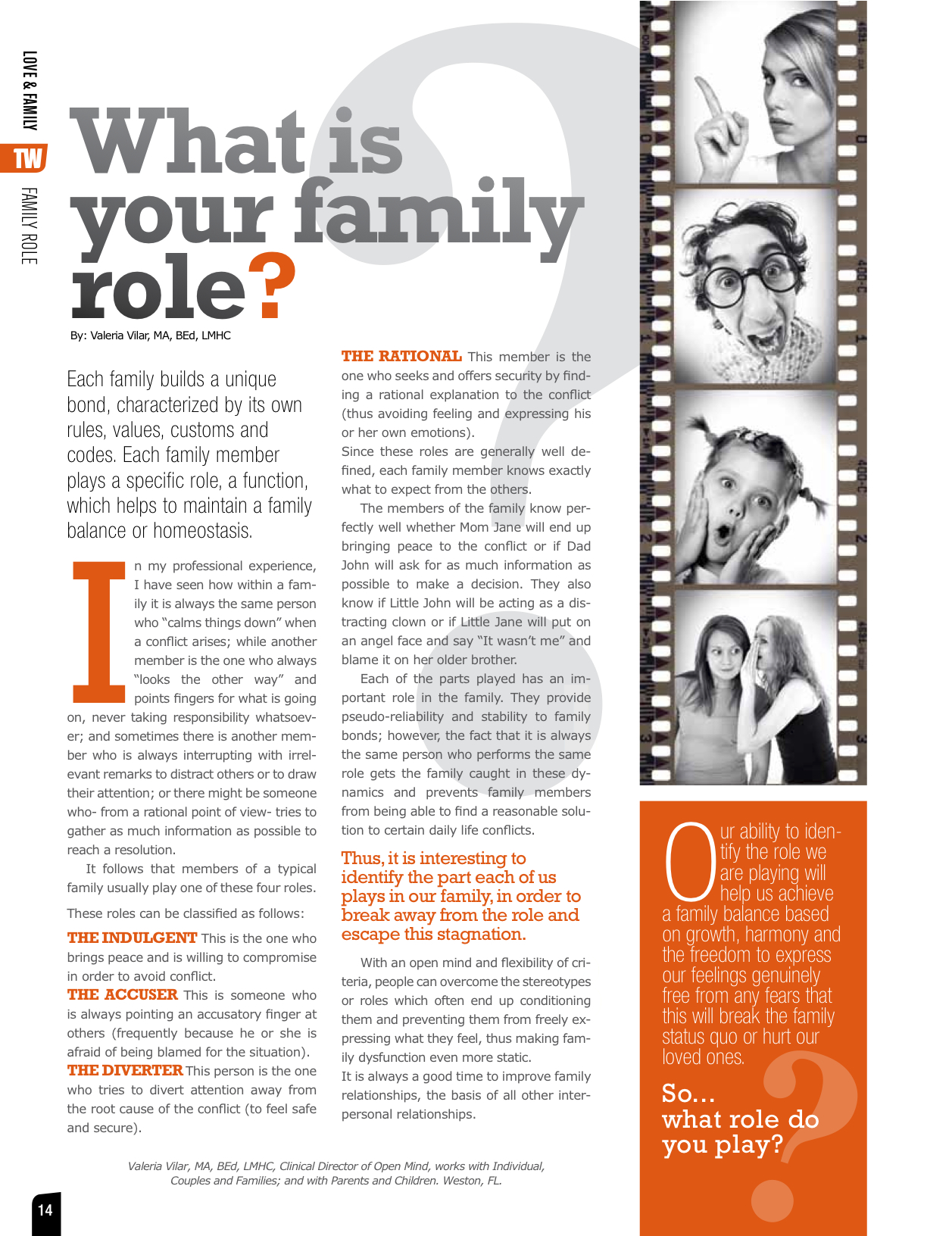What is your favorite role?
What is your favorite role?

By ValeriaVilar, MA, BEd, LMHC
Each family builds a unique bond characterized by its own rules, values, customs and codes.
Each family member plays a specific role, a function, which helps to maintain a family balance or homeostasis.
In our professional experience, we have seen how within a family it is always the same person who “calms things down” when a conflict arises; while another member is the one who always “looks the other way” and points fingers for what is going, never taking responsibility whatsoever; and sometimes there is another member who is always interrupting with irrelevant remarks to distract others or to draw their attention; or there might be someone who -from a rational point of view- tries to gather as much information as possible to reach a resolution.
It follows that members of a typical family usually play one of these four roles.
These roles can be classified as follows:
The INDULGENT is the one who brings peace and is willing to compromise in order to avoid conflict.
The ACCUSER is someone who is always pointing an accusatory finger at others (frequently because he or she is afraid of being blamed for the situation).
The DIVERTER is the one who tries to divert attention away from the root cause of the conflict (to feel safe and secure).
The RATIONAL member is the one who seeks and offers security by finding a rational explanation to the conflict (thus avoiding feeling and expressing his or her own emotions).
Since these roles are generally well defined, each family member knows exactly what to expect from the others.
The members of the family know perfectly well whether Mom Jane will end up bringing peace to the conflict or if Dad John will ask for as much information as possible to make a decision. They also know if Little John will be acting as a distracting clown or if Little Jane will put on an angel face and say “It wasn’t me” and blame it on her older brother.
Each of the parts played has an important role in the family. They provide pseudo-reliability and stability to family bonds; however, the fact that it is always the same person who performs the same role gets the family caught in these dynamics and prevents family members from being able to find a reasonable solution to certain daily life conflicts.
Thus, it is interesting to identify the part each of us plays in our family, in order to break away from the role and escape this stagnation.
With open mind and flexibility of criteria people can overcome the stereotypes or roles which often end up conditioning them and preventing them from freely expressing what they feel, thus making family dysfunction even more static.
It is always a good time to improve family relationships, the basis of all other interpersonal relationships.
Our ability to identify the role we are playing will help us achieve a family balance based on growth, harmony and the freedom to express our feelings genuinely free from any fears that this will break the family status quo or hurt our loved ones.
So... what role do you play?
Valeria Vilar, MA, BEd, LMHC, is the Clinical Director of Open Psychotherapy & Wellness Center. The center is located at the Weston Town Center since 1998. Additional information, can be reached at (954) 385-9550, and This email address is being protected from spambots. You need JavaScript enabled to view it. or by visiting www.openmind.cc



